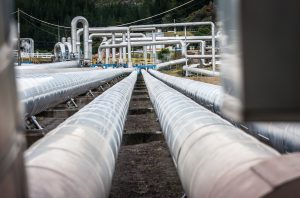
FORT NELSON – Canada has world-leading clean power resources, and the Government of Canada understands that one of the most important ways to fight climate change is to harness these resources to power our homes, businesses and lives. Investing in clean energy projects, including geothermal energy, will invigorate local economies, drive job creation and curb pollution.
Canada’s Minister of Natural Resources, the Honourable Seamus O’Regan Jr., announced nearly $40.5 million in federal investments for the Clarke Lake Geothermal Development Project, a wholly owned and Indigenous-led project that will develop one of the first commercially viable geothermal electricity production facilities in Canada.
“The Clarke Lake Geothermal Project represents Fort Nelson First Nation’s drive toward creating a sustainable economy for our People; one that strikes a balance between the environment and the economy. Our work to get this historic project off the ground demonstrates what Indigenous leadership toward net-zero project development looks like,” said Chief Sharleen Gale of Fort Nelson First Nation.
Being developed in the existing Clarke Lake gas field in BC, the Clarke Lake Geothermal Development Project will use the mid-grade geothermal heat resources in its reservoir to reduce emissions by displacing fossil fuels, while also demonstrating the value of geothermal energy as a viable clean energy technology for rural, Indigenous and northern communities.
Along with creating jobs and other economic opportunities for local community members, this project will provide capacity building and training to workers from other industries to help them transition into the renewable energy sector.
Although electricity generation will be the primary source of revenue, additional revenue opportunities could include the sale of waste heat generated by the plant. Excess heat from the facility could also power other activities in the local industries such as timber drying in the forestry sector and greenhouse food production in the agriculture sector.
The Clarke Lake geothermal facility is expected to produce between seven and 15 megawatts of clean electricity from a consistently available resource, which is equivalent to powering up to 14,000 households. By displacing fossil-fuel generation in northeast BC, it is also expected to reduce 25,000 tonnes of greenhouse gas emissions per year, equivalent to taking more than 5,000 cars off the road.
Western Economic Diversification Canada contributed $2 million to fully assess the geothermal resource’s ability to produce power, as well as develop an Indigenous Employment and Training Strategy. Future electricity revenues from the project will support new economic programs for the region and increase employment opportunities for Indigenous communities, including both short- and long-term jobs for workers with transferrable skills from the oil and gas sector.
Indigenous Services Canada contributed $250,000 toward the project through their Community Opportunity Readiness Program — a program that provides project-based funding for First Nation and Inuit Communities for a range of activities to support communities’ pursuit of economic opportunities.
The Government of British Columbia has contributed almost $1 million to the project, including $430,000 through the First Nations Clean Energy Business Fund, which supports Indigenous-led participation in the clean energy sector by providing capacity funding for energy planning and feasibility studies, along with equity investment in projects. There was also $500,000 invested through the BC Indigenous Clean Energy Initiative, a partnership with Western Economic Diversification Canada and the New Relationship Trust, which provides early support to develop Indigenous communities’ capacity and readiness to advance local or regional clean energy projects.


